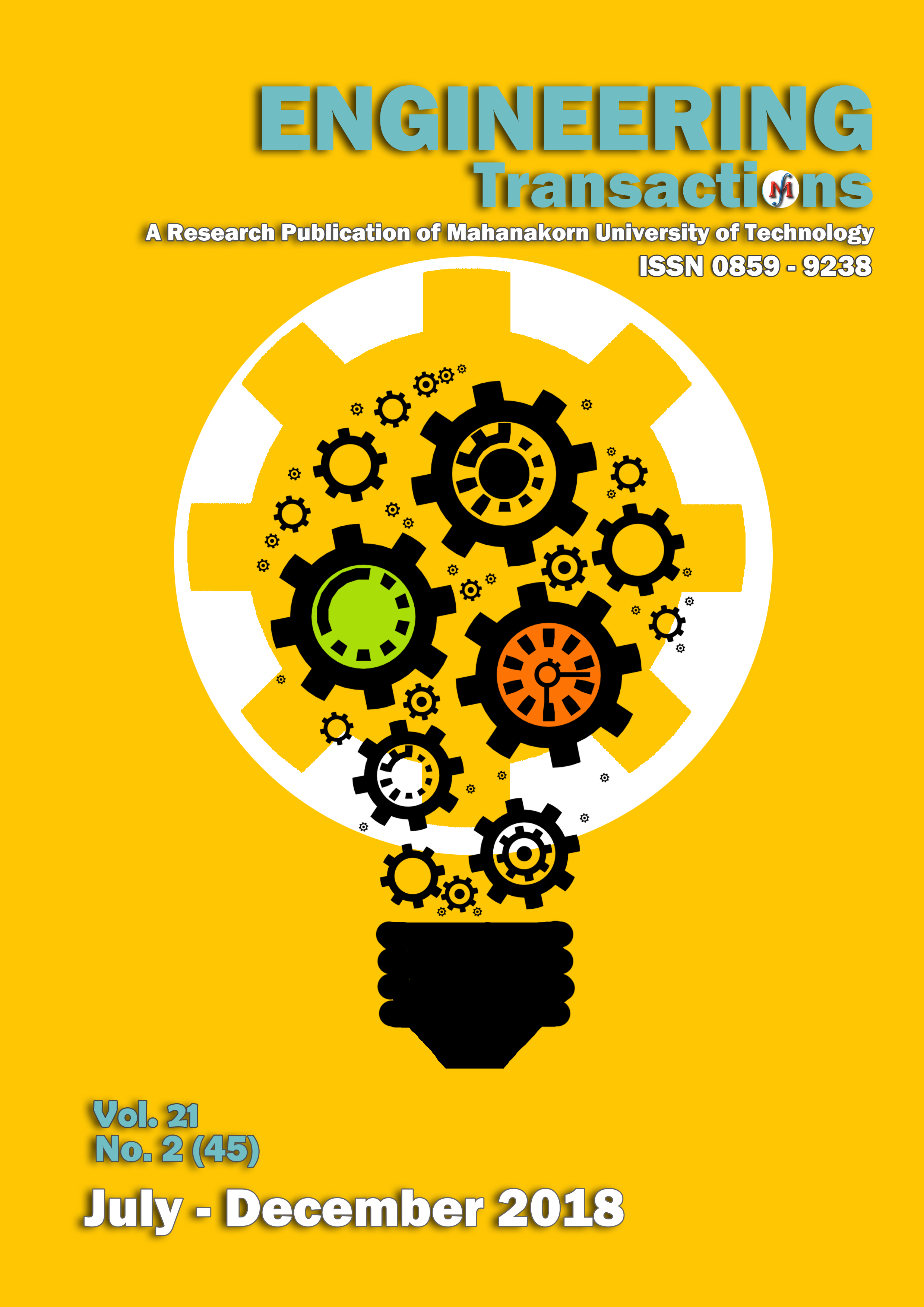Educational Program and Pedagogy to train chemical engineering graduates for the future
Main Article Content
Abstract
Technology and knowledge have evolved rapidly. Engineering education need to be adjusted so that it can guarantee the quality of the graduates, both knowledge and skills. The graduates should be able to perform their basic tasks which are required by their employers. Therefore, the educational program must be designed, conducted, and evaluated coherently to the desired graduate attributes that fit with the industrial requirements. This article brought the contents presented in Chemical Engineering Education journal on the title of “the future of engineering education: revisited” and added some local contents on each subtopic to reflect Thailand situation in comparison with the oversea programs.
Article Details
Copyright @2021 Engineering Transactions: A Research Publication of Mahanakorn University of Technology
Faculty of Engineering and Technology
Mahanakorn University of Technology
References
P. C. Wankat, and L.G. Bullard; (2016) “The Future of Engineering Education - Revisited”, Chemical Engineering Education, Vol. 50, No. 1, pp. 19-28.
A. Rugarcia, R. Felder, D. Woods, and J. Stice; (2000) “The Future of Engineering Education – Part 1. A Vision for a New Century”, Chemical Engineering Education, Vol.34, No. 1, pp. 16-25.
R. Felder, D. Woods, J. Stice, and A. Rugarcia; (2000) “The Future of Engineering Education – Part 2. Teaching Methods That Work”, Chemical Engineering Education, Vol. 34, No. 1, pp. 26-39.
D. Woods, R. Felder, J. Stice, and A. Rugarcia; (2000) “The Future of Engineering Education – Part 3. Developing Critical Skills”, Chemical Engineering Education, Vol. 34, No. 2, pp. 108-117.
J. Stice, R. Felder, D. Woods, and A. Rugarcia; (2000). “The Future of Engineering Education – Part 4. Learning how to teach” Chemical Engineering Education, Vol. 34, No. 2, pp. 118-127.
R. Felder, A. Rugarcia, and J. Stice; (2000). “The Future of Engineering Education – Part 5. Assessing Teaching Effectiveness and Educational Scholarship”, Chemical Engineering Education, Vol. 34, No. 3, pp. 198-207.
R. Felder, J. Stice, and A. Rugarcia; (2000). “The Future of Engineering Education – Part 6. Making Reform Happen”, Chemical Engineering Education, Vol. 34, No. 3, pp. 208-215.
Criteria for accrediting engineering programs: Effectiveness for evaluation during 2001-2002, ABET, 2001.
National Qualification Framework for Higher Education in Thailand: Implementation Handbook, Office of Higher Education Commission, 2006.
ประกาศคณะกรรมการการอุดมศึกษา เรื่องแนวทางการปฏิบัติตามกรอบคุณวุฒิระดับอุดมศึกษาแห่งชาติ ปี 2552, คณะกรรมการการอุดมศึกษา, 2552.
ประกาศกระทรวงศึกษา เรื่องมาตรฐานคุณวุฒิระดับปริญญาตรี สาขาวิศวกรรมศาสตร์ 2553, กระทรวงศึกษาธิการ, 2553.


